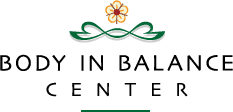In the last couple of years, essential oils have been making a comeback in many massage therapy practices. Essential oils – also known as aromatherapy – have been used to bolster the relaxation effect, but some practitioners take it to higher level of healthcare. They see essential oils as medicine.
Today, as I write I can reach into my purse for citrus and mint blend. Next to my bedside table, I can reach for Clary Sage if I am struggling to sleep. My “medicine kit” is comprised of essential oils and various blends. There is not a day that I do not utilize essential oils in almost everything I do. They support me in my writing, teaching, and healing work. They assist me as I manage the physical and emotional needs of my day. They play a central role in how I clean and purify my home.
Illness and pain, whether acute, chronic, or fleeting are usually attempts that beg us to slow down and to attend to ourselves in ways that are necessary to our growth. Illness and pain are calls to exceptional self-care. How we empower ourselves to find health and a comfortable, happy place within ourselves can come from the essence of the world around us.
Essential Oils in Medicine
Among the NIH research on tea tree oil, one article stated:
“A paradigm shift in the treatment of infectious diseases is necessary to prevent antibiotics becoming obsolete, and where appropriate, alternatives to antibiotics ought to be considered. There are already several nonantibiotic approaches to the treatment and prevention of infection, including probiotics, phages, and phytomedicines. Alternative therapies are viewed favorably by many patients because they are often not being helped by conventional therapy and they believe there are fewer detrimental side effects. In addition, many report significant improvement while taking complementary and alternative medicines. Unfortunately, the medical profession has been slow to embrace these therapies, and good scientific data are still scarce. However, as we approach the “postantibiotic era” the situation is changing. A wealth of in vitro data now supports the long-held beliefs that TTO has antimicrobial and anti-inflammatory properties. Despite some progress, there is still a lack of clinical evidence demonstrating efficacy against bacterial, fungal, or viral infections. Large randomized clinical trials are now required to cement a place for TTO as a topical medicinal agent.”
2 Essential Oils For Specific Health Conditions:
Tea Tree oil. According to a study, Tee Tree oil is used as an adjunctive treatment to kill certain bacteria, namely MRSA – a type of skin infection that can be very antibiotic resistant.
Have young children? Consider the combination of tea tree oil and lavender for treatment of lice and dust mites. For a natural treatment, add 10-15 drops of tea tree to shampoo to naturally kill lice.

Lavender “A surprising, small study in Unbound Medlinelooked at Lavender oil for the treatment of inflammatory bowel disease, inclusive Crohn’s disease and ulcerative colitis. The goal of the study was to look at the therapeutic effects of lavender oil on mice suffering with acute colitis caused by a bacterium called citrobacter rodentium. The study concluded that the lavender oil promoted the probiotic microbiota and increased bacteria and the intestine’s cellular activity to fight infection. Lavender has been regarded as an essential oil that encourages the relaxation response, but scientific research that tested the theory was inconclusive. However, I believe that it’s a balancing act. Sometimes that added smell of something sweet or floral coupled with a massage teaches the body how to relax and through the senses adds memory for the body to know lavender is about relaxing.
Begin your living-well journey with something fragrant and healing.

